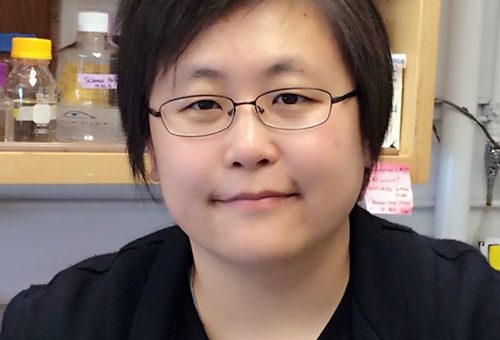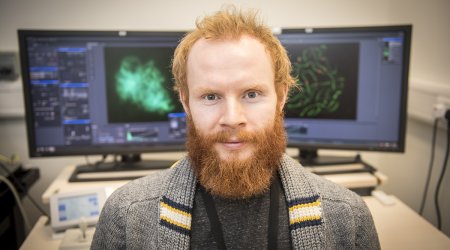Dr Yiliang Ding honoured with prestigious Blavatnik award

The pioneering research of Dr Yiliang Ding investigating the structure and function of RNA in living cells has been recognised with a major award.
Yiliang a group leader at the John Innes Centre, is among nine recipients of the 2024 Blavatnik Awards for Young Scientists in the UK, announced today by the Blavatnik Family Foundation and The New York Academy of Sciences.
The awards recognise research that is transforming medicine, technology, and our understanding of the world across three categories: Chemical Sciences, Physical Sciences & Engineering, and Life Sciences.
Yiliang is the first UK plant scientist to receive a Blavatnik Award, an accolade which lends global focus to the innovative work of her group at the John Innes Centre.
“This is a great personal accolade, an honour for my group and the John Innes Centre. It’s wonderful that the global community has recognised the importance of plant science in trying to solve the critical challenges of feeding the world, improving crop yields, and combatting plant health threats,” she said.
The Ding group pioneers innovative methods of profiling the structure of RNA inside living cells, providing a springboard for the global use of RNA structure-guided therapeutics for human health and crop improvement.
Professor Graham Moore, Director of the John Innes, said: “Yiliang’s research is world-leading and it is wonderful that she has been recognised by the Blavatnik Foundation with this award. Yiliang and her team push the boundaries of what we know about RNA, developing tools and techniques to unravel this fascinating and vital area of biology. Their fundamental scientific discoveries, and their dedication to translating this into real world solutions epitomises the role of the John Innes Centre.”
RNA is a fundamentally important molecule throughout all organisms, including bacteria, plants, animals, and viruses.
The molecule is well known as a crucial part of the central dogma of cellular biology, where DNA is transcribed into RNA, that produces proteins.
It is often represented as a single stranded “skinny” molecule, but thanks to the work of the Ding group and an international research community, we are discovering the complex, dynamic structures and shapes that RNA can form, and the importance of these structures in regulating diverse biological processes.
Yiliang and her team have developed methods to profile and analyse RNA in living cells which has led to increased structural understanding of this intriguing molecule. These methods are already being applied in RNA-based therapies for both human and plant viruses.
The research team is also designing small anti-viral molecules to treat plant viruses and other plant pathogens, with the potential for exciting applications in agriculture.
There are well over 2000 plant viruses that severely impact plant health and one example of the application of Yiliang’s research is in tackling Beet Viruses, a major threat to sugar beet production across the East of England and throughout Europe.
Beet Yellows Virus (BYV) causes Virus Yellows disease that underlies up to 50% yield losses in root crops. Beet mild yellowing virus (BMYV) causes another 22% yield loss.
Previously BYV was controlled using pesticides, primarily neonicotinoids, which have been withdrawn from the market because they are harmful to humans, insects, and the environment. Now, the virus goes unchecked in the field and is a threat to the production of root crops. The Ding group and collaborators have developed a novel anti-viral solution to this disease that is environmentally friendly, safe, sustainable, and effective.
Using novel technologies to capture the RNA structures of the sugar beet virus, they designed the anti-viral small molecules to clean out the plant virus.
Tests have shown 95% efficiency in cleaning the virus from sugar beet plants and the anti-viral strategy could be widely applied to treat other plant viruses.
The technology is being carried forward in collaboration with industrial partners as part of the spinout company RNAshield.
About the 2024 Blavatnik Awards for Young Scientists in the UK
Dr Ding, a group leader at the John Innes Centre, is among nine recipients of the 2024 Blavatnik Awards for Young Scientists in the UK, announced today by the Blavatnik Family Foundation and The New York Academy of Sciences.
The grants, totaling £480,000, recognise research that is transforming medicine, technology, and our understanding of the world across three categories: Chemical Sciences, Physical Sciences & Engineering, and Life Sciences.
Now in their seventh year, the Awards are the largest unrestricted prizes available to UK scientists aged 42 or younger donating £3.3 million to scientists across UK academia since their inception.
Internationally recognised by the scientific community, the Blavatnik Awards for Young Scientists are instrumental in expanding the engagement and recognition of young scientists and provide the support and encouragement needed to drive scientific innovation for the next generation.



